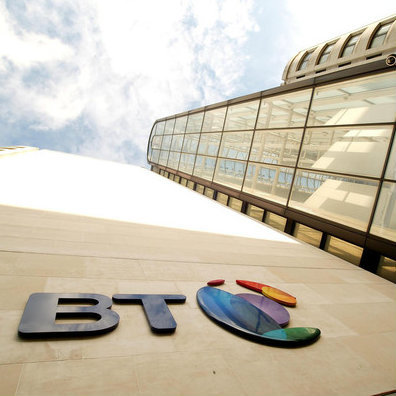Also in today's EMEA regional roundup: Vodafone calls for 5G auction be scrapped after UK's U-turn on Huawei; Privacy Shield trashed by EU's top court; O2 injects 5G into the fight against COVID-19 in care homes.

Also in today's EMEA regional roundup: Vodafone calls for 5G auction be scrapped after UK's U-turn on Huawei; Privacy Shield trashed by EU's top court; O2 injects 5G into the fight against COVID-19 in care homes.
BT has agreed to sell its domestic operations in France – which include management and maintenance of IT and network infrastructure, as well as networking and related professional services – to Computacenter. These operations generated total revenues of around £104 million (US$130 million) in the most recent fiscal year. BT is presenting the deal as another staging post in the "transformation" of its Global unit – as in transforming from lumbering liability to something more "agile" and indeed more profitable. The operator says it will retain a"strong presence" in France serving multinational businesses and organizations. As for Computacenter, it views the acquisition as a way of strengthening its position in the French networking market and increasing the number of its major domestic customers in France.
Vodafone UK wants you to believe a Huawei swap-out will cost "billions," even though rival BT – far more heavily reliant on the Chinese vendor – reckons it can do the job for about £500 million ($627 million). The reasons may have grown a little clearer this morning. During an interview with the Financial Times newspaper (paywall applies), Nick Jeffrey, the CEO of Vodafone UK, asked the government to scrap an upcoming 5G spectrum auction that might cost billions and instead award spectrum for an overall flat fee of just £1.2 billion ($1.5 billion). His argument? Things are bad enough with the government's eye-wateringly expensive decision to ban Huawei and an auction would only ratchet up the financial pain. The government might be persuaded. A straightforward award could prevent spectrum from being auctioned off in smaller, less useful blocks, according to the FT's report, and speed up 5G rollout, providing a potential boost for the UK's ailing economy. It would stop the telco whingeing, too. (See BT says Huawei ban is not so bad after all and Vodafone UK Threatens Legal Challenge Over Next 5G Auction.)
Europe's top court has trashed the so-called Privacy Shield, a protocol used by the likes of Facebook to transfer European citizens' personal data across the Atlantic. However, it's not all bad news for the US-based tech behemoths: As Reuters reports, an alternative protocol, "standard contractual clauses," has been approved. This is the latest twist in a long-running saga involving Max Schrems, an Austrian privacy activist who has been a thorn in the side of data-hungry US tech companies for several years. (See Eurobites: Privacy Shield Gets EU Go-Ahead and Eurobites: EU Data Watchdog Dents Privacy Shield.)
Telefónica UK (O2) is providing the 5G connectivity for a new COVID-19 testing "clinic on wheels," which is intended to provide remote testing and tracking of care home residents in the Scottish city of Glasgow. The trial will track COVID-19 at six care homes in the city, capturing the data of 550 residents and care home workers over three months The University of Glasgow's Adam Smith Business School and James Watt School of Engineering are collaborators in the project. Care homes have been a major factor to the high COVID-19 death rate in the UK: As the BBC reports, public health officials are currently investigating a care home in the Glasgow area after seven new cases were reported there.
Telecom Italia's board of directors met yesterday for an update on the potential acquisition of Oi's mobile assets in Brazil. The board granted the operator's CEO, Luigi Gubitosi, full powers to examine and approve the terms of the Binding Offer to be submitted by the Group's Brazilian subsidiary. Oi is the largest fixed-line operator in Brazil, but only the fourth-largest mobile operator there.
EE, the mobile operator owned by BT, has launched a new Digital Identity platform, which is intended to protect customers from criminal scams such as SIM swap fraud, where a customer's phone number is transferred without the account holder's knowledge and used to gain unauthorized access to online accounts. EE's SIM swap checker allows businesses to know when a customer's SIM was last changed, as a recent change could indicate potential fraud. The platform is already being used by a number of UK banks.
The UK government has issued a "call for views" on its proposed cybersecurity bill, which, among other things, recommends that Internet-connected smart-home devices come pre-set with a unique password or require the owner to set one before use. As the BBC reports, the move is intended to counter the problem of easy-to-guess passwords on smart devices, allowing, for example, home security camera recordings to be hijacked.
Sky Sports has announced that Liverpool's final soccer match of the English Premier League season, against Chelsea on July 22, will be screened free to air on its Pick channel, allowing the thousands of Liverpool fans who don't have a Sky contract to join in the celebrations of their team winning the league crown. (Liverpool, who have been streets ahead of the opposition this season, had their coronavirus-delayed league triumph sealed last month when rivals Manchester City lost to Chelsea.)
— Paul Rainford, Assistant Editor, Europe, Light Reading. Additional material by Iain Morris.
Read more about:
EuropeAbout the Author(s)
You May Also Like











